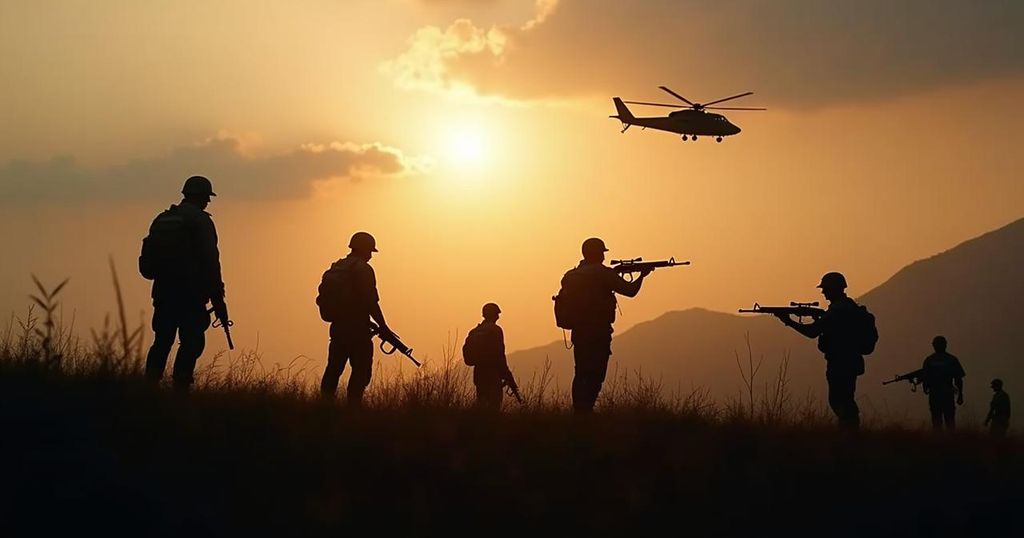Shooting of Migrants by Mexican Army Sparks Outrage and Calls for Investigation

In a tragic event, six migrants were shot dead and ten others wounded by Mexican army troops near the Guatemalan border. President Claudia Sheinbaum condemned the incident, labeling it ‘deplorable.’ The army fired on a truck carrying migrants from several countries, leading to scrutiny over the military’s increasing role in law enforcement and allegations of excessive force.
In a tragic incident occurring near the Guatemalan border, six migrants have been confirmed dead following gunfire from Mexican army troops targeting a convoy suspected of smuggling individuals. President Claudia Sheinbaum characterized the event as “deplorable,” emphasizing the gravity of the situation while ten others sustained injuries amid the chaos. This incident marks a significant escalation of violence against migrants by authorities in Mexico since the 2021 killings of seventeen migrants by police in Tamaulipas. Reports indicate that the troops acted upon hearing shots as three trucks approached their position. In a confused narrative shared by the Defense Department, soldiers claimed the first truck did not stop, prompting them to fire on a second vehicle carrying migrants from various countries, including Nepal, Cuba, and India. Of the twelve injured individuals, two later succumbed to their injuries, resulting in a total death toll of six. The government did not immediately provide clarity on whether the army’s gunfire directly caused the fatalities, nor did it confirm if any weapons were recovered from the migrant vehicles. The Mexican military has come under scrutiny due to its increased role in law enforcement, a policy that has been met with criticism from various human rights organizations. Peruvian officials have demanded a thorough investigation into the killings, which occurred on the first day of Sheinbaum’s presidency. The two soldiers responsible for the shooting have been placed under civilian custody for questioning as investigations continue. Activists, such as Irineo Mujica, have raised concerns about the migrants’ ability to fire upon the army, asserting that their survival often depends on bribing authorities rather than confrontation. Moreover, the Roman Catholic Mexican Council of Bishops condemned the incident as indicative of a broader trend of militarization of immigration policies, marking this event as a tragic consequence rather than an isolated occurrence. This incident underscores the precarious and often dangerous reality faced by migrants traversing Mexico, exacerbated by the growing militarization of the region’s border security policies.
The shooting of migrants in Mexico reflects ongoing tensions regarding immigration enforcement and military involvement in law enforcement duties. In recent years, Mexico has increasingly relied on military forces to manage migration flows, a strategy that has faced substantial criticism from human rights organizations. This incident occurs in a geographical context where drug trafficking organizations often exploit the vulnerabilities of migrants, leading to frequent incidents of violence. Previous episodes, including the 2021 killings by police in Tamaulipas, underscore a troubling pattern of excessive force used against vulnerable populations. President Sheinbaum’s administration is now contending with the fallout from this tragic event, which stands to challenge her governance and agenda surrounding military involvement in civil affairs.
In conclusion, the tragic killing of six migrants near the Guatemalan border by Mexican army troops highlights the ongoing crisis of migration and the role of security forces in addressing these challenges. The event raises critical questions about the militarization of immigration policy, responsibility of state actors in safeguarding human rights, and the imperative for thorough investigations into such incidents. As domestic and international calls for accountability grow louder, the incident may significantly impact President Claudia Sheinbaum’s administration and its policies moving forward.
Original Source: abcnews.go.com







